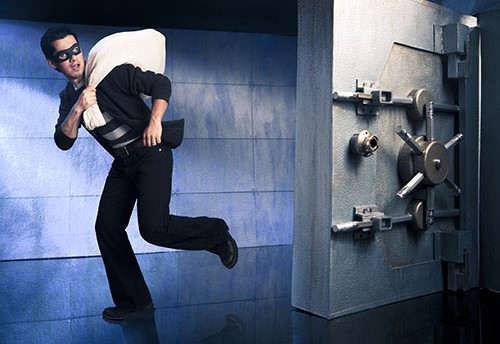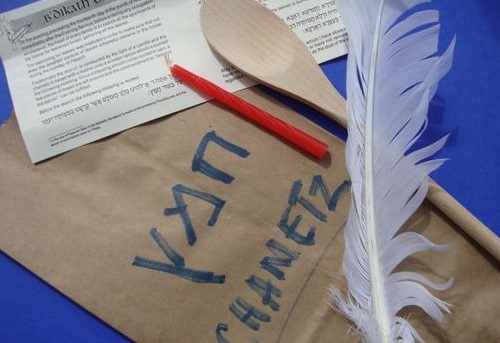Adapted from the writings of Dayan Yitzhak Grossman April 11, 2024 The Los Angeles Times…

Mob Rules: Does the Torah Sanction Vigilante Justice?
Adapted from a shiur by Rav Yosef Greenwald
Going alone
Bais Din has a side job in addition to mishpat: to serve as shotrim, officers (Devarim 16:18). This function requires Bais Din, in certain circumstances, to intervene to protect society from those that would menace it. If a troublemaker were to make a practice of causing damage via grama, Bais Din could apply social pressure or excommunicate him, but that is not a mishpat function.
Likewise on the dinei nefashos side of the aisle, if a murderer is known to Bais Din, it can act to protect the public by placing him in circumstances that will lead to his death (Mishna, Sanhedrin 9:5). This is a Halacha leMoshe MiSinai. But that is not part of the court’s mishpat role.
There is a Halachic concept of “adjudicating for oneself” (Bava Kama 27) but it is quite limited in scope. One may stop someone from stealing his property, even to the point of physically removing him. The Nimukei Yosef understands that the victim is empowered by Bais Din to act as its emissary, but according to the Rosh, the Halachic mechanism here is that in a clear-cut case, one may actually rule on the matter himself. But even this authority is tightly circumscribed: Mordechai, citing Maharam MeiRutenberg, says that one may seize his own property but not collect a debt.
An example: If your bicycle has been stolen, you may enter the thief’s garage and take it. But if the bicycle is gone, you may not grab its value in cash from the kitchen drawer. Were that to be permitted, he says, anyone could steal with impunity by claiming he’s owed the money, and the rule of law would collapse. The Rosh in Hamainiach says a creditor can’t seize property for collateral without resort to Bais Din.
May I tow someone’s car if he regularly parks in my driveway and he ignores repeated warnings? Probably. May I physically remove someone who is damaging my property? Yes.
The mitzva to rebuke another Jew for his wrongdoing (Vayikra 19:17) includes the responsibility to prevent it where possible. Suppose someone is about to smoke on Shabbos. I may be permitted to slap his hand to cause the cigarette to fall out, but I certainly may not beat him up to deter future violation. This, too, is not about justice or punishment.
The Ketzos and the Nesivos (3) disagree whether an individual may force someone to perform a positive mitzva (as Bais Din must). R’ Moshe Sternbuch writes that one who knows his friend violates isurim with his television may break it. Prevention, not punishment.
The defense of oneself or others is a legitimate use of force, in fact a required one (Rambam Hil. Rotzayach 1:6), but lethal force may be applied only if the threat cannot be averted by nonlethal means (Sanhedrin 84a). The Mishneh Lamelech (Hil. Rotzayach 1:15) writes that the pursued man himself is not so restrained. (Note that defense from attack is very different from the after-the-fact vigilante justice we discussed in Part I.)
In certain cases of public chillul Hashem, including bo’el Aramis (where a Jew is intimate with a gentile in public), a kana’i—a zealot who seeks to defend Hashem’s honor without regard for his own safety—may kill the offender in the act. But because such killing is extrajudicial, the perpetrator may kill the kana’i in self-defense without consequence, something a condemned man could not do to those who would execute him. As the Gemara says (Sanhedrin 82a), Zimri could have killed Pinchas as a rodef (pursuer).
This Halacha leMoshe miSinai is Halacha v’ain morin kain: Were a witness to a bo’el Aramis to inquire about the Halacha, he would not be instructed to kill the offender.
What if someone threatens to kill a man if he doesn’t comply with an arbitrary demand? “I don’t like your tie. Remove it or I’ll kill you.” Is this a case of self-defense, or, because the threat can be eliminated by simply complying, must the threatened party give in? The Galya Masechta (Y.D. 5; see also Teshuvos Chelkas Yoav, Kuntres He’aros 17) takes the former view. He proves it from the above Gemara about Zimri, because Zimri could have eliminated the threat from Pinchas just by stopping what he was doing. (This is relevant to the controversial “stand your ground” laws in many U.S. states and the debate about whether there ought to be a “duty to retreat,” as required by common law.) Some question whether this would apply to someone like Zimri, who was engaged in forbidden behavior (see Minchas Shlomo Vol. 1, 7:2).
* * *
This concludes the series. May we soon merit to see the fulfillment of the promise that Tzion will be redeemed through mishpat (Yeshaya 1:27).





